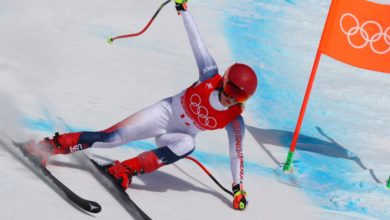Omicron Booster Efficacy: Why Experts Believe They Will Work

Study published in The September 16th, New England Journal of Medicine (NEJMIt is clear that an Omicron-based COVID-19 booster shots would be a good idea.
A caveat first: The effectiveness of Omicron’s new booster, which was approved on August 31, protects against BA.4/BA.5. The new study, conducted by Moderna, involves the company’s first combined vaccine that never came to market; it targets both the original SARS-CoV-2 virus and an earlier version of the Omicron variant, BA.1. It’s data that the U.S. Food and Drug Administration (FDA) and U.S. Centers for Disease Control and Prevention (CDC) relied on heavily in deciding whether to authorize the combination booster that targets the original virus and the latest Omicron variants, BA.4 and BA.5. Human studies involving the new authorized boosters from Moderna and Pfizer-BioNTech have just begun and won’t be completed for another few months.
Moderna has provided data in the NEJMThe results of the study provide the most reliable evidence for the effectiveness of the boosters. In the study, more than 800 volunteers received either a booster dose of Moderna’s original shot against SARS-CoV-2 or a booster dose of the bivalent booster against both the original and Omicron BA.1 strains. Before beginning the study, all participants had received the Primary Series of Two Moderna Doses and were boosted one time.
Continue reading: Research Finds: COVID-19 Boosters Keep Patients Out Of Hospital
People who had received the bivalent booster had higher levels of antiviral antibodies a month later than those who had the original booster. These antibodies were better at binding to and neutralizing not only the BA.1 and original viruses but almost all other variants, such as Omicron BA.4 or BA.5.
Pfizer-BioNTech—which also made a bivalent BA.1 vaccine that didn’t come to market—reported similarly encouraging results of its bivalent BA.1 booster to the FDA’s vaccine expert committee last June, but has not yet published those results in a scientific journal. Moderna presented data on its BA.1 bivalent vaccine at the FDA meeting. Pfizer BioNTech displayed data from an experiment involving over 300 participants aged 55+ who were given the booster. It produced significantly more antibodies against BA.1, BA.4 & BA.5 than the original booster. However, the antibodies against BA.4 or BA.5 were lower than those against BA.1. Side effects from the Omicron BA.1 bivalent vaccination were also similar to that of the original.
Data on the effectiveness of the Omicron vaccine will be available as more people get it. The protection will be measured over time, which is something researchers are also interested in. Researchers hope that better match of the vaccine booster with the circulating strain can provide more lasting protection. This will allow for more frequent shots and higher doses.
Here are more must-read stories from TIME
Here are more must-read stories from TIME





